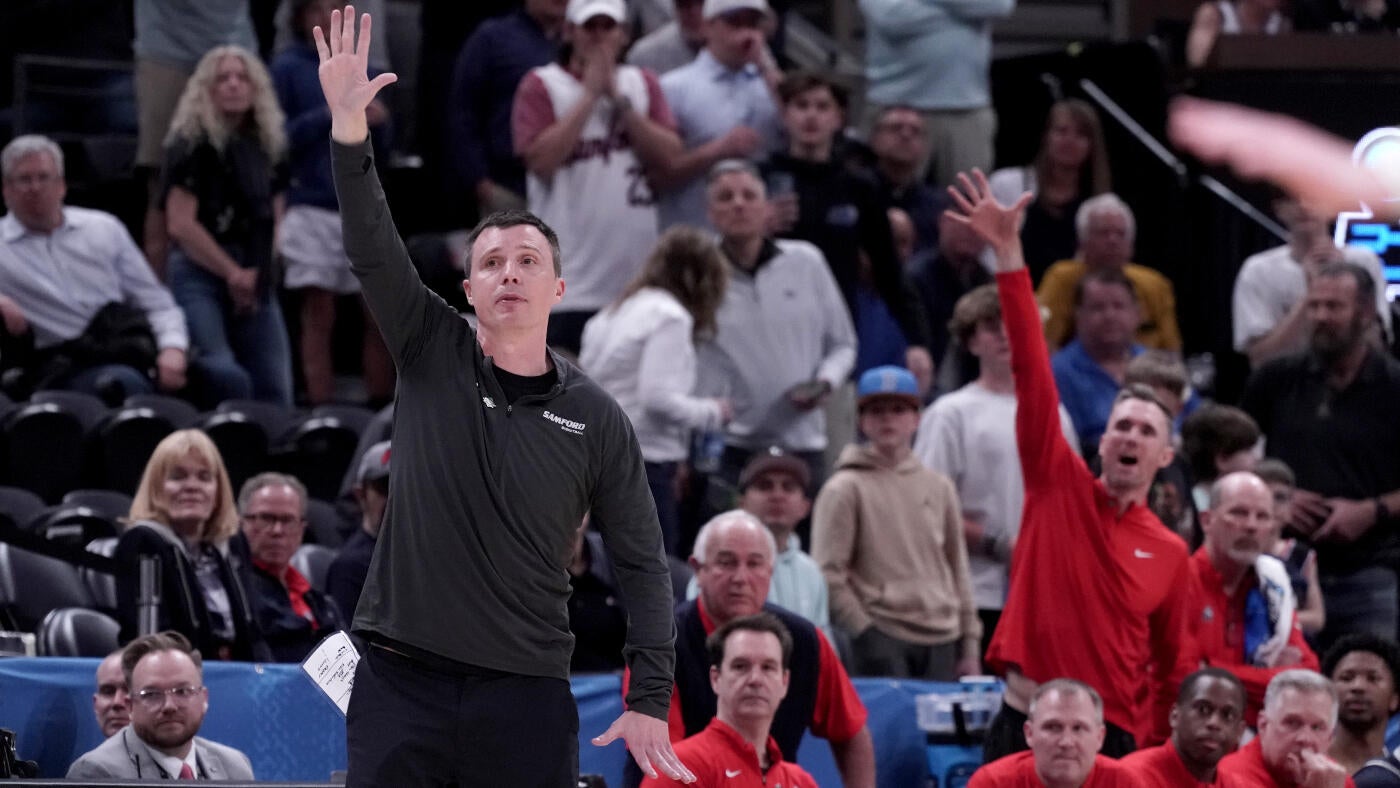
Because that’s where the viewers are.
Prior to arriving at , I covered women’s college basketball for Sports Illustrated for more than a decade, including annually the women’s Final Four. The role gave me a window into the sport, and I could see the potential for an economic rocket shot as the players got more skilled and athletic, and programs got deeper. The past three years have shown everything points arrow up:
In the BCC Era (Before Caitlin Clark), the 2022 title game between South Carolina and UConn drew 4.85 million viewers and peaked at 5.91 million viewers across ESPN, ESPN2 and ESPNU, the most viewers in nearly two decades.
In 2023, the championship moved from ESPN networks to ABC. The title matchup between LSU and Clark’s Iowa more than doubled 2022, averaging 9.9 million viewers.
Last year, the South Carolina-Iowa title game drew an astonishing 18.9 million viewers on ABC and peaked at 24.1 million. It was the most-watched basketball game (men’s or women’s, college or pro) since 2019.
All three games tipped off at 3 p.m. ET, and there is a strong argument to be made that even with their increasingly huge TV ratings, they all left even more audience attention on the table by airing at 3 p.m. ET, rather than primetime, when more people would watch.
During my years of writing about women’s basketball, I’ve watched ESPN make a bigger commitment to its coverage, from airing more high-profile regular-season games in better programming windows to enhancing its studio coverage with dedicated women’s basketball experts. The company made the decision in 2021 to air all 63 NCAA Tournament games nationally and placed both semifinal games on Big ESPN. Now, the title game airs on ABC. ESPN recognized it had a product with growing mass appeal and acted accordingly.
The deal that ESPN signed with the NCAA last year — an eight-year, $920 million media rights agreement that featured 40 championships bundled together (including women’s basketball) through 2032 — has contractual provisions that the title game will air on ABC. This is a great thing.
But the time has come. Rather than the usual 3 p.m. ET start time — as with this Sunday’s championship game — the title game should air on ABC in starting next year, and ESPN executives and the NCAA should advocate hard for this.
The ABC schedule this Sunday includes new episodes of “America’s Funniest Home Videos” (7 p.m. ET), “American Idol” (8 p.m. ET) and “The $100,000 Pyramid” (10 p.m. ET, and celebrity contestants include Rob Riggle, Luenell, Fortune Feimster and Rachel Dratch). That’s not exactly NBC’s Thursday night lineup in the 1990s.
The Walt Disney Co. would benefit far more in the long run from exposing one of its significant sports properties to a bigger audience because women’s basketball is going to be played on ESPN/ABC far longer than “Idol” and “Pyramid” will run on that network. ...




